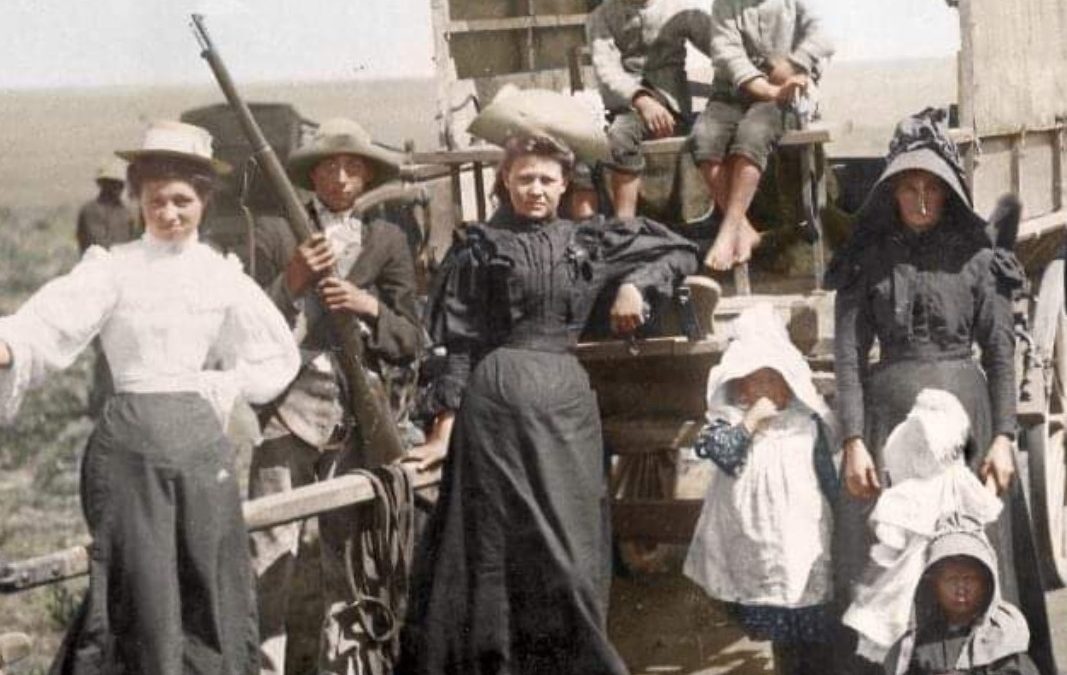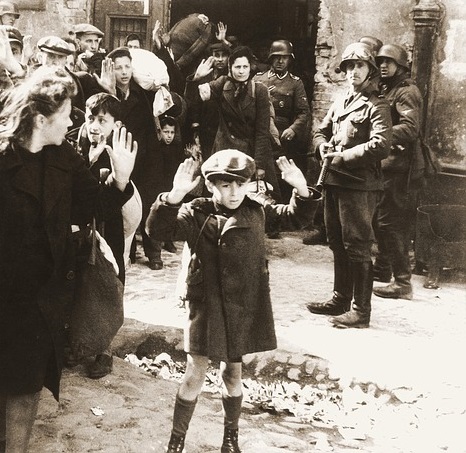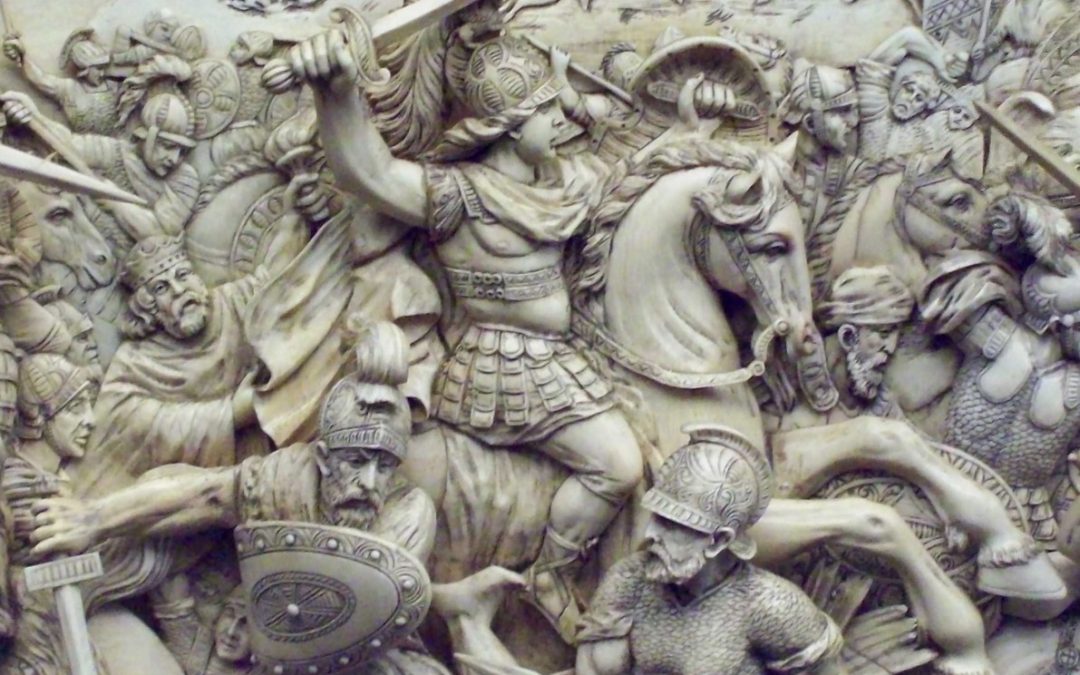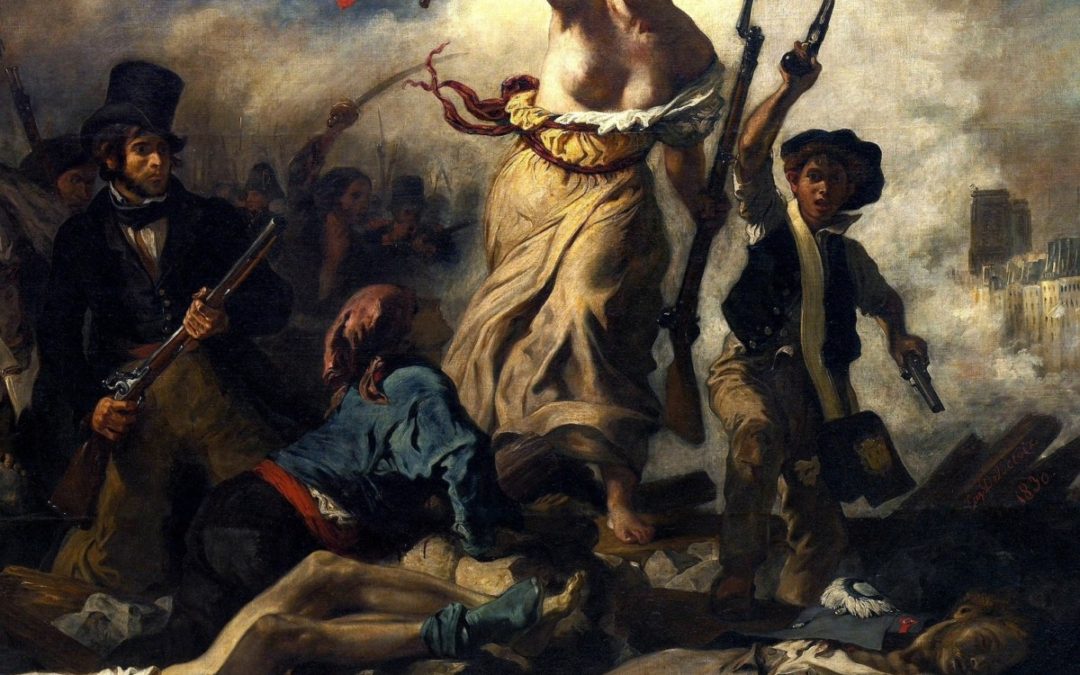
by Richard Subber | Oct 31, 2019 | Book reviews, Books, History, World history
…a painful growth to womanhood…
Book review:
The Lost History of Stars
by Dave Boling (b1951)
Chapel Hill, NC: Algonquin Books of Chapel Hill, 2017
340 pages
This is a delicate story about sturdy people who try to preserve loving relationships in a brutal war.
It is an emotionally rasping challenge to read so much reserved conversation about the monstrous incivilities, tribulations, and hardships of Dutch farmers and their families who opposed the British Tommies during the Boer War (1899-1902) in South Africa.
Lettie, the 14-year-old oldest daughter on the Venter family homestead, cannot avoid her painful growth to womanhood. Against the agonizing deprivations and losses caused by the war, she matches her innocent courage and her freshening longing for love.
Bina is a young African woman who teaches Lettie that “deeds live.”
In time Lettie learns that deeds live in hearts, and that hearts can be broken, and that lives can be remade with loved ones who survive.
(Image courtesy of Boer War Colourised Photographs on Wikimedia)
* * * * * *
Book review. Copyright © Richard Carl Subber 2019 All rights reserved.
Book review: Seven Gothic Tales
by Isak Dinesen,
such lush and memorable stories…
–
Above all: Poems of dawn and more with 73 free verse poems,
and the rest of my poetry books are for sale on Amazon (paperback and Kindle)
and free in Kindle Unlimited, search Amazon for “Richard Carl Subber”
* * * * * *

by Richard Subber | Oct 10, 2019 | Book reviews, Books, History, Human Nature, World history
…all too believable,
all too horrific…
A friendship corrupted by Nazi hatred before WWII—
two friends who couldn’t understand how to avoid mutual self-destruction.
Book review:
Address Unknown
by Kathrine Kressmann Taylor (1903-1996)
Washington Square Press, New York, copyright 1938, published 2001
Read Address Unknown in one sitting. You can do it.
This is a tiny work that delivers gut punches on every other page. Repeatedly, it seems to be gratuitously dramatic and somewhat contrived, except that it’s all too believable and all too horrific.
It’s hard to discuss Address Unknown without including spoiler information, but I’m going to try because I think you should want to take a short time out of your busy day to read this through at one sitting and let the experience overwhelm you.
In 1932-34, Max Eisenstein, a Jew in New York, corresponds with his non-Jewish friend, Martin Schulse, in Germany. They have a joint business interest: a New York art gallery. Ominously, Hitler is setting the stage to become Chancellor of Germany in 1933.
Max and Martin habitually exchange letters. Their correspondence is swiftly transformed from business matters and the chatter of friends, to awkwardly ingenuous, increasingly corrosive, and bitterly destructive words that betray Martin’s fatal embrace of the newly politicized Aryan culture.
Max and Martin cease to be friends. The terrible consequence of their estrangement is no surprise, but not less terrible because we can so easily grasp its nature and implications.
Kathrine Taylor relentlessly tells the story. The reader is left to wonder about the dreadful imperatives of the kind of human behavior that cannot avoid self-destruction.
* * * * * *
Book review. Copyright © Richard Carl Subber 2019 All rights reserved.
You’re down to just one piece of bread…
…would you share it with anybody?
Book review:
Tribe: On Homecoming and Belonging
by Sebastian Junger
click here
–
Writing Rainbows: Poems for Grown-Ups with 59 free verse and haiku poems,
and the rest of my poetry books are for sale on Amazon (paperback and Kindle)
and free in Kindle Unlimited, search Amazon for “Richard Carl Subber”
* * * * * *

by Richard Subber | Sep 4, 2019 | Book reviews, Books, History, World history
…the supermen were underground…
Book review:
Mila 18
by Leon Uris (1924-2003)
American writer, World War II veteran
Garden City, NY: Doubleday & Company, Inc., 1961
442 pages
Whatever you think you know about the Warsaw ghetto uprising in 1943, you’ll know more after you read Mila 18.
Leon Uris wrote a historically detailed work of realistic fiction that will fill you with gagging horror, and with endless respect for the brave Jewish fighters who kept the Nazi killing machine at bay for a month in 1943.
About 13,000 Jews died in the burning buildings, in the bunkers, and in the sewers inside the ghetto.
Their main resistance command post was in an underground bunker located at ulica Miła 18.
It’s an almost inconceivable irony that the Polish street address can be translated as “18 Pleasant Street.”
* * * * * *
Book review. Copyright © Richard Carl Subber 2019 All rights reserved.
Book review: The Bartender’s Tale
Ivan Doig’s story, I mostly loved it…
–
Writing Rainbows: Poems for Grown-Ups with 59 free verse and haiku poems,
and the rest of my poetry books are for sale on Amazon (paperback and Kindle)
and free in Kindle Unlimited, search Amazon for “Richard Carl Subber”
* * * * * *
by Richard Subber | Jul 1, 2019 | Book reviews, Books, Books Commentary, History, World history
much was not lost…
Book review:
The Map of Knowledge:
A Thousand-Year History
of How Classical Ideas Were Lost and Found
Violet Moller
New York: Doubleday, 2019
312 pages
It’s quite possible that Moller offers much more than you already know about Euclid’s The Elements (c300 BCE). and Ptolemy’s The Almagest, (c150 CE), and the many published works on anatomy and medicine by Galen (130-210 CE).
The Map of Knowledge is a scholarly account of the preservation of knowledge from ancient times to the present day. I bet you can guess that it’s not a beach book.
Moller forgot to mention that throughout the centuries, most human beings on the planet couldn’t read or write, and so it was the lucky, the gifted, and the self-selected few who preserved important knowledge for the benefit of succeeding generations. Think about a version of Fahrenheit 451, stretched over the centuries.
Go ahead, read Fahrenheit 451 again.
* * * * * *
Book review. Copyright © Richard Carl Subber 2019 All rights reserved.
Book review: Tales from Shakespeare
good summaries by Charles and Mary Lamb…
–
In other words: Poems for your eyes and ears with 64 free verse and haiku poems,
and the rest of my poetry books are for sale on Amazon (paperback and Kindle)
and free in Kindle Unlimited, search Amazon for “Richard Carl Subber”
* * * * * *

by Richard Subber | Mar 30, 2019 | American history, Book reviews, Books, History, World history
No, the “Great Man” theory won’t scour…
Book review:
The End of Greatness:
Why American Can’t Have
(and Doesn’t Want) Another Great President
by Aaron David Miller (b1949)
Palgrave Macmillan, New York, 2014
280 pages
First things first: Miller’s title sets him up for failure. It defies even the murkiest conception of common sense to argue that Americans don’t want a great president. I hazard the guess that it’s impossible to define “great president” in a way that would satisfy most readers.
More substantially, The End of Greatness isn’t a worthwhile read for me because, right up front, Miller acknowledges his endorsement of the “Great Man” theory of historical understanding that was championed initially in the 1840s by the Scottish writer Thomas Carlyle. The theory is often cited but it has only quite diminished standing today, as most historians and informed thinkers believe that durable circumstances and the complex dynamics of human interaction have much more impact than “Great Men” on our lives and on history as it unfolds. So, Miller gets started on the wrong foot, and his arguments can’t overcome the narrowness of his analysis.
“Where are the giants of old, the transformers who changed the world and left great legacies?” Where are the leaders who “will author some incomparable, unparalleled, and ennobling achievement at home or on the world stage, an achievement likely to be seen or remembered as great or transformational?” Miller cites rebellions and revolutions as “crucibles for emerging leaders.”
He can’t escape defining “greatness” and offers: “defined generally as incomparable and unparalleled achievement that is nation- or even world-altering.” A couple pages later he digs the hole deeper when he equates greatness with military, political, economic and “soft” power. Incredibly, Miller declares “Greatness in the presidency may be rare, but it is both real and measurable,” and he temptingly alludes to “traces of greatness” in several contemporary presidents, while arguing “Greatness in the presidency is too rare to be relevant in our modern times.”
Miller makes it official on page 10: Lincoln was one of the great presidents. Lincoln once dismissed another man’s argument by saying “it won’t scour,” as 19th century farmers said that a plow “won’t scour” when it failed to easily let the clods slide off the plowshare.
I think Miller’s thesis won’t scour. He mistakenly asserts that a few great leaders should get much of the credit for history’s “transformations.” He frames his arguments with words that can’t be acceptably, explicitly defined on the grand historical scale that he uses: what is and what isn’t, specifically and unarguably, a “great legacy”? a “transformation”? an “unparalleled achievement”? a “trace of greatness”?
The End of Greatness relies on great big categories and a deceptive positive spin to discuss a little idea, and to make a gratuitous point that really can’t be proved or disproved.
Full disclosure: I didn’t read the whole book. The Introduction stopped me cold.
* * * * * *
Book review. Copyright © Richard Carl Subber 2019 All rights reserved.
We Were Soldiers Once…and Young
…too much death (book review)
Lt. Gen. Harold G. Moore (ret.)
and Joseph L. Galloway
–
My first name was rain: A dreamery of poems with 53 free verse and haiku poems,
and the rest of my poetry books are for sale on Amazon (paperback and Kindle)
and free in Kindle Unlimited, search Amazon for “Richard Carl Subber”
* * * * * *

by Richard Subber | Nov 10, 2018 | Book reviews, Books, History, World history
A hero, not a saint
Book review:
Lafayette
by Harlow Giles Unger (b.1931)
Hoboken, NJ: John Wiley & Sons, Inc., 2002
452 pages
I acknowledge the obvious: Unger fully entertains in recounting that Marie-Joseph-Paul-Yves-Roch-Gilbert du Motier de la Fayette was a national, military, political and, indeed, a paternal hero to millions in America and France during the American and (several) French revolutions.
There is no doubt that, despite the fact that he was one of the richest French nobles of his time, Lafayette was publicly and privately dedicated to republican government and a social/economic order that was far more egalitarian than the monarchical and aristocratic structures that prevailed.
Was he a great man? Unger, like many of his biographers, says yes. Lafayette was a courageous battlefield leader, he was an enlightened manorial lord who enhanced the lives of his peasants, and he was both outspoken and fearless, repeatedly, in literally dangerous political situations for a couple decades in Revolutionary and Napoleonic France. Unger amply—even poetically—demonstrates these lifelong characteristics of the man Americans called “our Marquis.”
I also feel obliged to call attention to some countervailing factors that Unger fully describes but does not adequately interpret.
Lafayette put his money where his mouth was. He repeatedly used his great personal wealth to pay and outfit the troops he commanded, when government funds and supplies ran low. I suggest a case could be made that the Marquis, uniquely among American commanders, paid for his military success in the Revolutionary War. Throughout the war, the options and operations of colonial commanders were significantly hindered by short funds and short supplies. If Lafayette had not been able to pay, feed, clothe, and arm his troops with his personal resources, could he have been as winning a general as he was? I suspect the answer is “No.”
Some biographers refer to Lafayette as the “victor” at Yorktown in 1781. Unger calls him a “hero” of Yorktown. Lafayette was not the only American general at Yorktown, and he wasn’t the only French general. Lafayette did use his small force to isolate Cornwallis in Yorktown, but he had to wait until Washington, Rochambeau and others arrived with sufficient forces before he participated in the final assaults.
In France he repeatedly declined to step up to the plate and take executive leadership, during the revolutionary and Napoleonic convulsions, when the French people and the contentious military/political factions would have handed the throne or the presidency of France to him on a velvet pillow. The Marquis repeatedly risked his life to defuse explosive situations by his personal, courageous intervention. However, Unger fastidiously details Lafayette’s repeated reluctance to take the final step and take control when, arguably, he could have stabilized dangerous situations, and forestalled or prevented catastrophic consequences. Lafayette wasn’t responsible for the violence, but, time after time, he left a void that unfortunately was filled by lesser men.
Was Lafayette a great man? Yes. A successful general? Yes. Was he a really lucky guy? Yes. Did he and his reputation benefit immensely from great wealth and fortuitous circumstances? Yes. Did he live up to his potential in serving France and the French nation? Maybe not.
Just one other thing: Unger profligately demonstrates that Lafayette and Washington had a deeply affectionate man-to-man—explicitly, like father and son—relationship, by using far too many excerpts from their numerous letters. No biggie, but I had to stop reading them about halfway through the book…they bonded, I get it.
* * * * * *
Book review. Copyright © Richard Carl Subber 2018 All rights reserved.
–
In other words: Poems for your eyes and ears with 64 free verse and haiku poems,
and the rest of my poetry books are for sale on Amazon (paperback and Kindle)
and free in Kindle Unlimited, search Amazon for “Richard Carl Subber”
* * * * * *



